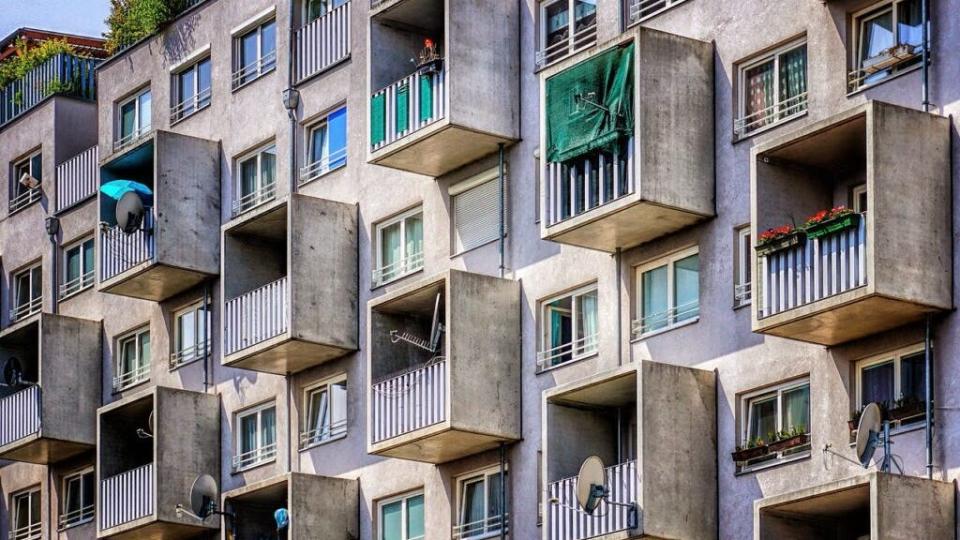Zillow Economist Admits 'We Are In A Big Hole' As U.S. Housing Shortage Hits 4.5 Million Despite Construction Efforts

Newly released data from Zillow reveals that despite a surge in construction, the U.S. housing market has failed to keep pace with growing demand, resulting in a national deficit of 4.5 million homes.
Amid a backdrop of two-decade high mortgage rates and home prices ebbing around record highs that helped trigger an affordability crisis affecting millions, Zillow senior economist Orphe Divounguy is calling for aggressive and transformative housing policies.
Don't Miss:
If there was a new fund backed by Jeff Bezos offering a 7-9% target yield with monthly dividends would you invest in it?
The average millionaire has 7 sources of income. Here are 3 passive income opportunities you can add today.
"The simple fact is there are not enough homes in this country, and that’s pushing homeownership out of reach for too many families," Divounguy said in a news release noting the 4.5 million home shortage. "Filling the housing shortage is the long-term answer to making housing more affordable."
According to Zillow, the housing market is driven simply by supply and demand. As more individuals seek to purchase homes than the market can supply, housing prices inevitably rise.
However, the current market isn't a normal one.
The negative situation in the housing market had been brewing in the years following the Great Recession as millennials, the largest generation in U.S. history, entered their prime homebuying years, leading to an escalation in home affordability issues.
Compounding the issue, despite a construction boom during the COVID-era, efforts to meet housing demand have fallen short. In 2022, although it was the most productive year for home construction since the early 2000s, just 1.4 million homes were completed. In 2023, roughly 1.45 million homes were completed.
Trending: Elon Musk and Jeff Bezos are bullish on one city that could dethrone New York and become the new financial capital of the US.
That new construction still did not match the pace of family formation, Zillow said.
"We are in a big hole," the senior economist noted. "And it is going to take more than the status quo to dig ourselves out of it."
The outsized discrepancy between family formation and new home construction indicates two things: Supply was insufficient to accommodate the new demand, and it wasn't enough to address the long-standing deficit that had already been affecting the affordability crisis for over a decade.
Experts agree that zoning laws, which prevent some areas from allowing more density, are part of the supply issue.
"It seems straightforward: We need to build more homes," Zillow chief economist Dr. Skylar Olsen said in the company's Home Price Expectations survey. "Changes through policies like modest densification will give us more ‘at bats' to create density and help communities stay livable for everyone."
Trending: Collecting passive income from real estate just got a whole lot simpler. A new real estate fund backed by Jeff Bezos only needs $100 to get started.
Essentially, cities with historically higher incomes and more expensive housing markets often have stricter zoning laws, which restrict the supply of housing and keep homeownership out of reach for many.
Despite mortgage rates over 7%, Zillow found that an estimated 7.9 million renting families could realistically afford to take on a mortgage — this is called being ‘mortgage-ready'.
However, because they live in highly regulated markets, even those who are ‘mortgage ready' are forced to rent.
"Without a huge injection of new homes in the near future, affordability will continue to be a challenge for many — especially first-time homebuyers," Olsen said.
President Joe Biden issued a budget in March that aims to build two million affordable homes and establish an ‘innovation’ fund to help communities build and renovate housing, as well as convert office spaces into homes.
"We have to build, build, build," Biden tweeted then. "That’s how we bring down costs for good."
Keep Reading:
No generation before Gen Z has had this investment opportunity – How successful Zoomers plan to retire in their 30's.
This Jeff Bezos-backed startup will allow you to become a landlord in just 10 minutes, and you only need $100.
"ACTIVE INVESTORS' SECRET WEAPON" Supercharge Your Stock Market Game with the #1 "news & everything else" trading tool: Benzinga Pro - Click here to start Your 14-Day Trial Now!
Get the latest stock analysis from Benzinga?
This article Zillow Economist Admits 'We Are In A Big Hole' As U.S. Housing Shortage Hits 4.5 Million Despite Construction Efforts originally appeared on Benzinga.com
© 2024 Benzinga.com. Benzinga does not provide investment advice. All rights reserved.

 Yahoo Finance
Yahoo Finance 